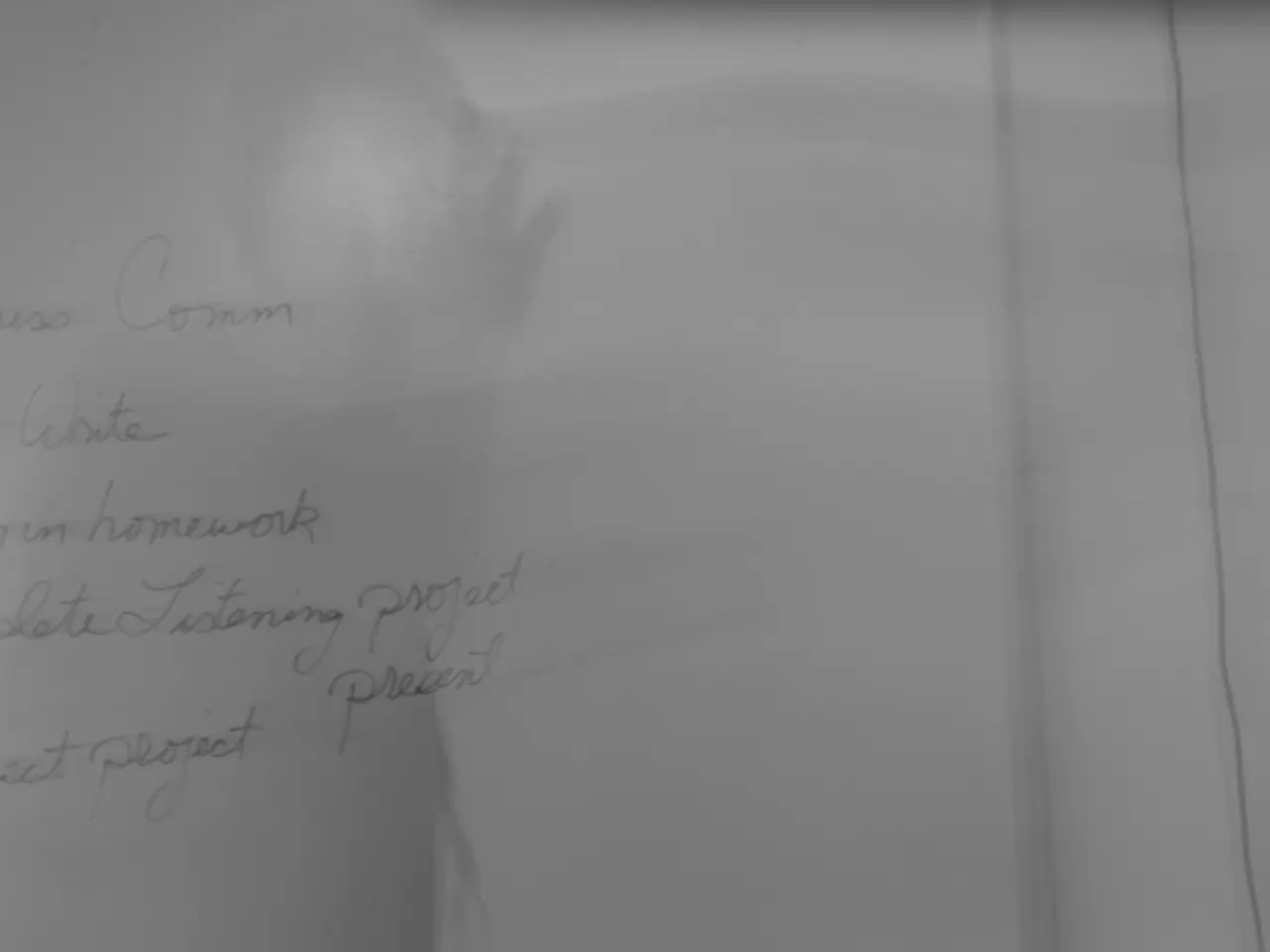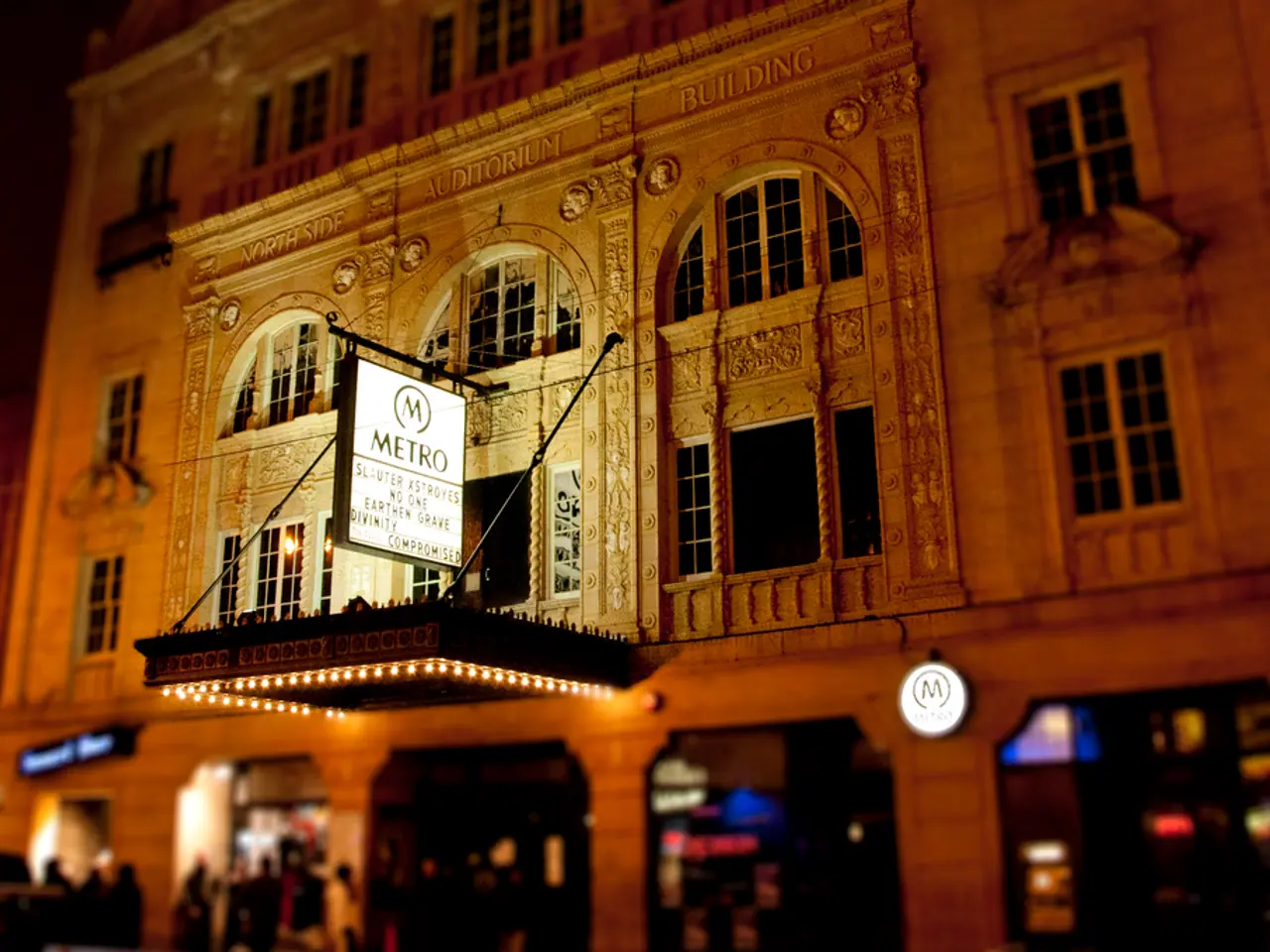The Crucial Role of Faith in Commercial Exchanges
Groovin' through the financial realm, it's easy to lose sight of the crucial force keeping everything together - trust, baby, trust. In this vast, interconnected marketplace, trust is the unseen hand that nudges transactions towards stability and efficiency. Think of it like the lubricant that makes economic gears spin smoothly. Yet, this elusive yet vital force often goes overlooked outside of economic sociology - the study of the social happenings shaping economic transactions.
Economic sociology peels back the layers of trust, revealing it as more than just a feeling or gut instinct. Instead, trust is about assumptions regarding future behavior, risk assessment, and shared values, all crucial factors when deciding whether to dive into a financial transaction with a stranger. Since trust helps us tame the unpredictability of human behavior and market forces, let's dive deeper into how trust impacts the economic dance.
Trust can be a game-changer, forging bonds between strangers, shaping financial systems, and steering transactions at every turn. Whether it's buying a cup of coffee or closing a multimillion-dollar deal, trust assures us that everyone's dancing in step, expectations are aligned, and commitments will be kept, all while reducing the uncertainty that typically plagues these interactions. So, exactly how does trust work in the economic dance, and why has economic sociology been so curious about it? By changing perspectives, from friendly encounters to institutional relationships, we'll explore the profound effect trust has on the economic dance.
The Essence of Trust in the Economic Dancefloor
Trust in the economic realm isn't a stagnant entity but a dynamic, evolving construct. Understanding the basis for trust is essential to understanding how this choreographed dance takes place between countless players in the economy.
Trust is built on social connections, formed through past experiences and cultural contexts. In the dance of economic transactions, everyone steps onto the floor with their personal history and expectations, forming implicit assumptions about the other's behavior. This is the essence of social capital - the collective investment in relationships and networks that fosters cooperation.
In addition, institutions shape trust by providing frameworks for its growth. Think of laws, regulations, and enforceable contracts; they supply the protection needed for trust to flourish. By having a reliable institutional framework, people and organizations gain confidence to take part in economic activities, knowing they're protected against opportunism or deceit.
The foundation of trust is multifaceted, coming from personal, social, and institutional elements. Together, they paint a clear picture of how trust operates, providing a strong foundation for deeper exploration of its connection to economic transactions.
Personal Trust: The Human Connection
While laws and social norms create a backdrop for economic interaction, personal trust takes center stage in direct exchanges between individuals. Personal trust is based on mutual respect and personal credibility, and it's the human element in economic sociology that creates a fertile ground for honesty and reliability to flourish, ultimately reducing transactional costs.
Think about micro-level interactions like everyday service exchanges, where trust is assumed. Making a grocery run involves a tacit belief that the store provides quality goods at fair prices, while the store trusts the customer will pay. Trust allows these exchanges to proceed with minimal friction, leading to economic and social harmony. Personal trust reduces the necessity for rigid enforcement mechanisms and minimizes costs that might otherwise arise due to potential conflicts or misunderstandings.
On larger scales, personal trust influences negotiating, partnerships, and collaborative ventures. Businesses building close ties with customers often leverage personal trust to cement customer loyalty, fueling growth and maintaining devoted consumer bases. Personal trust also benefits business by streamlining communication, quickening decision-making, and enabling parties to explore innovative ideas and solutions, promoting an environment suitable for economic growth.
In summary, personal trust in economic exchanges is about striking a balance between humanity and commerce, elevating economic transactions into collaborative engagements that profit everyone involved.
Institutional Trust: Stepping Up
When economic interactions move past personal exchanges and into more complex networks and systems, institutional trust comes into play. Institutional trust relates to the faith people place in larger entities, such as governments, corporations, and organizations, to establish a fair and stable economy.
Financial institutions present a perfect setting to explore institutional trust. People trust banks to manage deposits, facilitate loans fairly, and protect personal financial information. Trust in banks is crucial, for if it's breached, history has shown that it can lead to financial crises and economic instability.
Corporations also rely on trust to maintain stakeholder relationships. When they uphold ethical standards, practice honest operations, and show corporate responsibility, businesses earn trust, fostering sustainable growth. Trust translates into customer loyalty, robust supply chains, and strong investor relationships, creating a stable economic environment for innovation and long-term development.
In essence, institutional trust expands the reach of economic interactions, enabling transactions to transcend local limitations and tap into the global marketplace.
Trust and Economic Stability: A Dance to the Tune of Trust
Economic stability is often viewed as the backbone of prosperity and growth, but its relationship with trust underscores its delicate nature. Trust supports economic stability by promoting consistency and integrity, making markets more predictable and reducing the volatility and uncertainty that come with economic activities.
Trust influences monetary stability, shaping exchange rates, inflation rates, and consumer confidence. High levels of trust in a state's monetary policy can lead to a stronger currency and stable investment inflows. Conversely, gaps in trust due to mismanagement or corruption can cause capital flight, inflationary pressures, and a loss of investor confidence, destabilizing economies and related markets.
At the macroeconomic level, trust between nations - trust in trade relationships - fosters collaboration and exchange. Trade agreements, cross-border investments, and development projects rely on trust, as they rely on the assumption that nations will keep their word, ensuring economic exchanges are mutually beneficial.
Therefore, trust and economic stability are inseparable, each creates the other, thereby forming a stable economic environment that fosters prosperity.
The Dance of Trust in the Modern Economy
While the importance of trust in economic exchanges is rarely up for debate, trust cultivation comes with unique challenges in the modern economy. Rapid advancements in technology, globalization, and digitization reshape market dynamics, constantly testing trust and requiring innovative strategies for adaptation and the renegotiation of trust-building mechanisms.
The digital economy poses significant challenges to trust due to the absence of physical presence. Online transactions necessitate robust digital security measures, clear consumer protection policies, and transparency to reassure participants of secure and trustworthy exchanges. To succeed, businesses must navigate these challenges with finesse to build and preserve digital trust.
Moreover, globalization exposes businesses to diverse cultural norms and expectations, complicating trust-building in multinational contexts. Bridging cultural differences requires corporations to embrace cultural sensitivity, adapt their practices to local norms, and ensure open communication throughout.
Viva la revolución! The modern economy demands adaptable strategies to establish and maintain trust. By successfully implementing these strategies, trust is sustained, inspiring confidence and encouraging participation in growing and evolving economies across the globe.
Final Spin
Trust remains the cornerstone of economic exchanges, a complex interplay of human and institutional interactions. And as we've danced through this exploration of trust, it's clear that it plays a pivotal role, serving as the foundational element that fosters cooperation, ensures smooth transactions, and supports economic stability. Whether at the personal, organizational, or country level, trust is vital for economic resilience and growth.
But maintaining trust in today's ever-changing economic landscape requires hard work, creativity, and agility. It's about adapting to new technologies, adopting responsible digital practices, embracing cultural sensitivity, and overcoming psychological barriers. In essence, trust is a dance, one that calls upon economists and sociologists alike to deeply understand and skillfully navigate its rhythm, and to teach the next generation the steps for a more prosperous, collaborative, and sustainable marketplace.
- Understanding trust in the economic realm is essential, as it is a dynamic construct built on social connections, frameworks provided by institutions, and personal relationships that play a significant role in shaping financial systems and transactions at every level.
- Economists and sociologists alike have recognized the profound impact trust has on the economic landscape, as it fosters cooperation, reduces uncertainty, and promotes both local and global economic stability. In navigating the rapidly changing modern economy, the ability to cultivate and maintain trust has become crucial for fostering resilience and growth.





